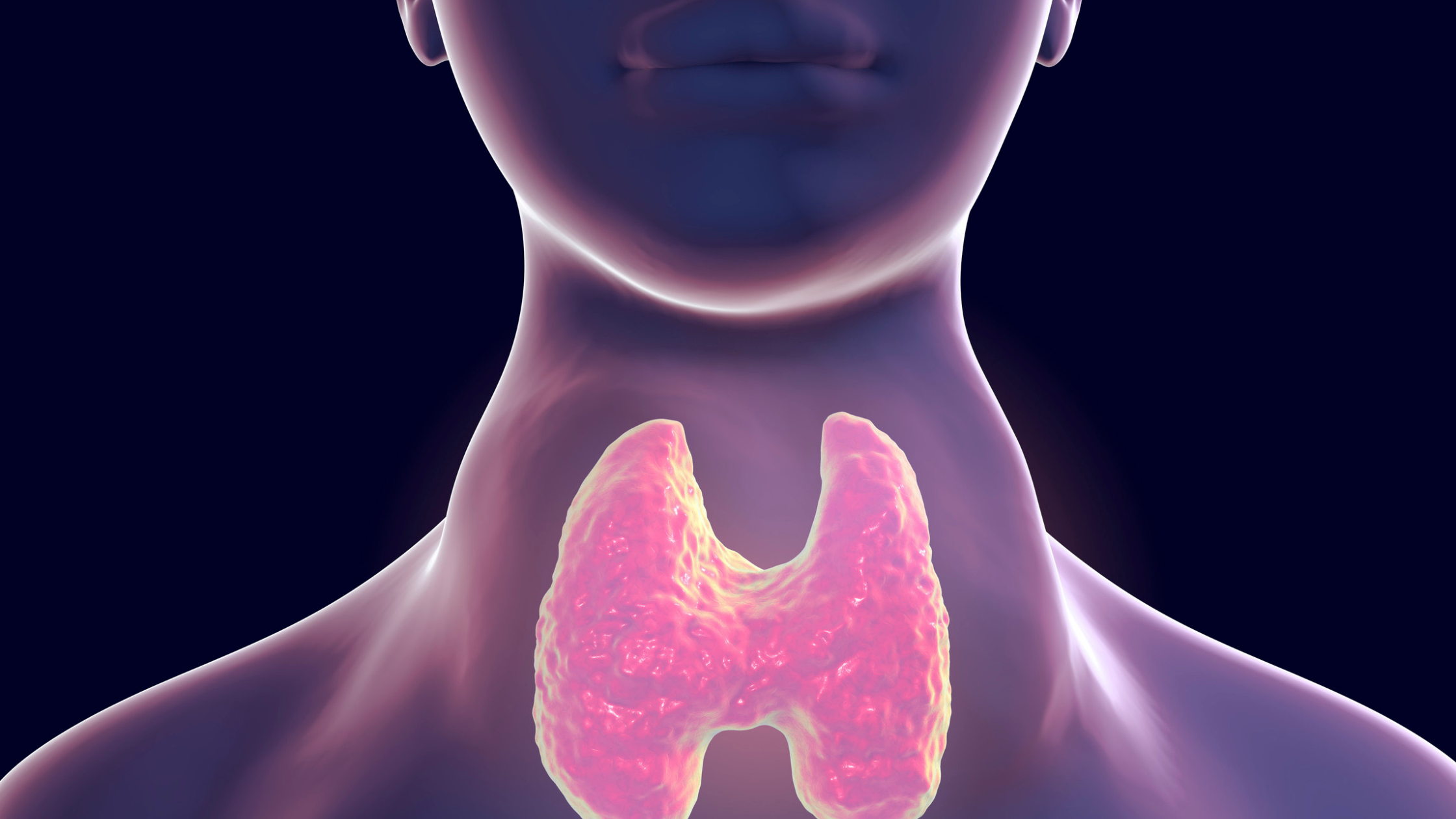Hyperthyroidism NCLEX Review for Nursing Students + Free Download

Understanding Hyperthyroidism
Understanding Hyperthyroidism is important for nursing students preparing for the NCLEX exam due to several reasons:
Prevalence: Hyperthyroidism is a common endocrine disorder. Nurses are likely to encounter patients with hyperthyroidism in various healthcare settings, making knowledge about its management and care essential.
.png?width=1200&height=630&name=nclex%20review%20for%20angina%20(2).png)
Wide-Ranging Impact: Hyperthyroidism can affect multiple body systems, leading to a variety of signs and symptoms. Nurses need to be able to recognize these manifestations and provide appropriate care.
Complications: Hyperthyroidism can lead to complications such as thyroid storm, atrial fibrillation, and osteoporosis. Nurses should understand the potential risks and complications associated with this disorder.
Assessment Skills: Nurses need to be skilled in assessing patients for signs of hyperthyroidism, including weight loss, tachycardia, tremors, and changes in mood and behavior.
Medication Management: Nurses should understand the medications used to manage hyperthyroidism, such as antithyroid drugs and beta-blockers, and their administration.
Thyroid Function Tests: Nurses should be familiar with the diagnostic tests used to assess thyroid function, such as TSH, T3, and T4 levels.
Patient Education: Nurses educate patients about hyperthyroidism, its treatment options, potential complications, and the importance of medication adherence.
Emergency Management: Nurses should be prepared to manage complications like thyroid storm, which requires rapid intervention to stabilize the patient's condition.
Documentation: Accurate documentation of signs, symptoms, medication administration, patient education, and complications is crucial for continuity of care.
NCLEX Preparation: The NCLEX exam may include questions related to hyperthyroidism, its pathophysiology, assessment, interventions, and patient education. A solid understanding of this topic is essential for answering these questions accurately.
Overall, understanding Hyperthyroidism equips nursing students to provide safe, patient-centered care to individuals affected by this endocrine disorder. It ensures that nursing students are prepared to address the unique challenges and needs of patients with hyperthyroidism and contribute to positive patient outcomes.
General Information for Hyperthyroidism
1. Causes
a. Graves Disease (autoimmune)
b. Excess secretion of TSH from Pituitary
c. Thyroid, Pituitary, or Hypothalamic Tumor
d. Medication Reaction
2. Thyroid Storm (Thyroid Crisis)
a. Acute Exacerbation due to infection, stress,
trauma
Overview for Hyperthyroidism
1. Excess secretion of thyroid hormone (TH) from the thyroid gland
2. Results in Increased Metabolic Rate
Assessment of Hyperthyroidism
1. Hormone changes
a. ↑ T3, T4, Free T4 hormones
b. ↓ TSH
2. Positive radioactive iodine uptake scan
3. Possible presence of a goiter
4. Cardiac changes
a. Tachycardia, HTN, palpitations
5. Neurological changes
a. Hyperactive reflexes, hand tremor
b. Emotional instability, agitation
6. Sensory changes
a. Exophthalmos (bulging eyes)
b. Blurred vision
7. Integumentary changes
a. Fine, thin hair
8. Reproductive changes
a. Amenorrhea
b. Change in Libido
i. Some clients experience increased libido, while others report decreased libido
9. Metabolic changes
a. Hypermetabolic
b. ↑ Temperature
c. Heat intolerance
d. Weight Loss
e. Hypocalcemia
i. Due to excess Calcitonin
10. Thyroid Storm (Thyroid Crisis)
a. Febrile state
b. Tachycardia, HTN
c. Tremors
d. Seizures
Therapeutic Management for Hyperthyroidism
1. Provide rest in a cool, quiet environment
2. Cardiac monitoring as ordered
3. Maintain patent airway
4. Provide eye protection for exophthalmos
a. Regular eye exams
b. Eye drops for moisture
5. Medications
a. Antithyroid medications → propylthiouracil or methimazole
b. Radioactive Iodine 131 → taken up by thyroid gland
i. Destroys some thyroid cells over 6-8 weeks
ii. Avoid in pregnancy
iii. Monitor for hypothyroidism
6. Surgical Removal of Thyroid (Thyroidectomy)
a. Monitor airway (swelling)
i. Assess for obstruction, stridor, dysphagia
ii. Have tracheotomy equipment available
b. Maintain upright position
c. Assess for bleeding
d. Monitor for hypocalcemia
i. Removal of the parathyroid glands causes
a decrease in (parathyroid hormone), which
helps to maintain blood calcium levels.
2. Have calcium gluconate available PRN
e. Minimal talking after surgery
.png?width=1200&height=630&name=nclex%20review%20for%20angina%20(2).png)
Nursing Case Study for Hyperthyroidism
Patient Profile:
Emily Miller, a 28-year-old woman, presents to the outpatient clinic with complaints of rapid heart rate, weight loss, tremors, and excessive sweating. She reports feeling anxious and restless and has noticed changes in her menstrual cycle.
Assessment:
Upon assessment, Emily appears agitated and restless. Her heart rate is elevated, and she has a fine tremor in her hands. She has lost significant weight over the past few weeks. Her skin is warm and moist, and her eyes appear prominent.
Interventions:
1. Thyroid Function Tests:
Collaborate with the healthcare provider to order thyroid function tests, including TSH, T3, and T4 levels, to confirm the diagnosis of hyperthyroidism.
2. Medication Management:
Collaborate with the healthcare provider to initiate antithyroid medications, such as methimazole or propylthiouracil, to inhibit thyroid hormone production.
3. Beta-Blockers:
Collaborate with the healthcare provider to initiate beta-blockers to manage Emily's symptoms of tachycardia, tremors, and anxiety.
4. Patient Education:
Educate Emily about hyperthyroidism, its causes, potential complications, and the importance of medication adherence.
5. Nutritional Guidance:
Collaborate with a registered dietitian to provide nutritional guidance to ensure Emily's caloric intake meets her increased metabolic needs.
6. Emotional Support:
Provide emotional support to Emily, addressing her concerns about her symptoms and helping her manage anxiety.
7. Follow-Up Care:
Schedule regular follow-up appointments to monitor Emily's thyroid function, adjust medication doses, and assess her overall progress.
8. Complication Prevention:
Educate Emily about the potential complications of hyperthyroidism, such as thyroid storm, and how to recognize early signs.
9. Patient Advocacy:
Advocate for Emily's holistic care, collaborating with the healthcare team to ensure her physical, emotional, and psychosocial needs are addressed.
Outcome:
With comprehensive care and patient education, Emily's condition improves. Her heart rate becomes more controlled, and she experiences a reduction in her anxiety and tremors. Her thyroid function tests show improvement as she adheres to her medication regimen.
Free Download For Hyperthyroidism NCLEX Review
Are you looking for more must-know NCLEX review topics? Download our free eBook "NCLEX Flash Notes" as a valuable resource for nursing students. Encourage readers to download their free copy of the "NCLEX Flash Notes."
.png?width=1200&height=630&name=nclex%20review%20for%20angina%20(2).png)
You CAN Do This
Happy Nursing!





%20review%20nursing%20students.png?width=352&name=Intracranial%20Pressure%20(ICP)%20review%20nursing%20students.png)

